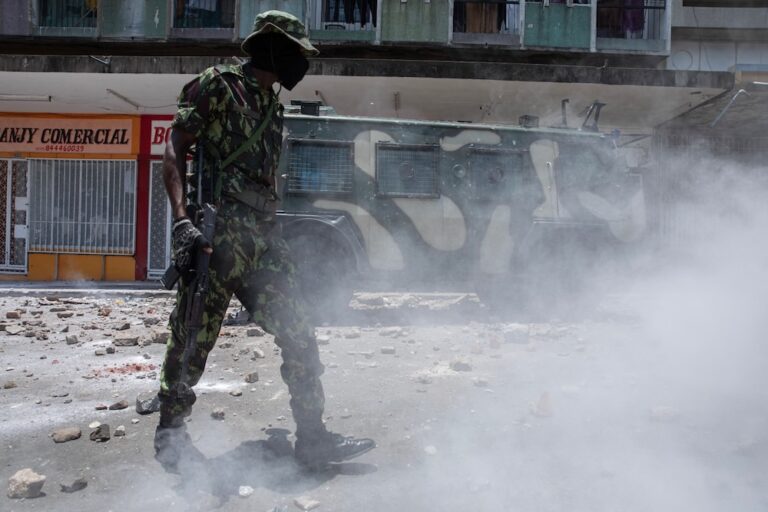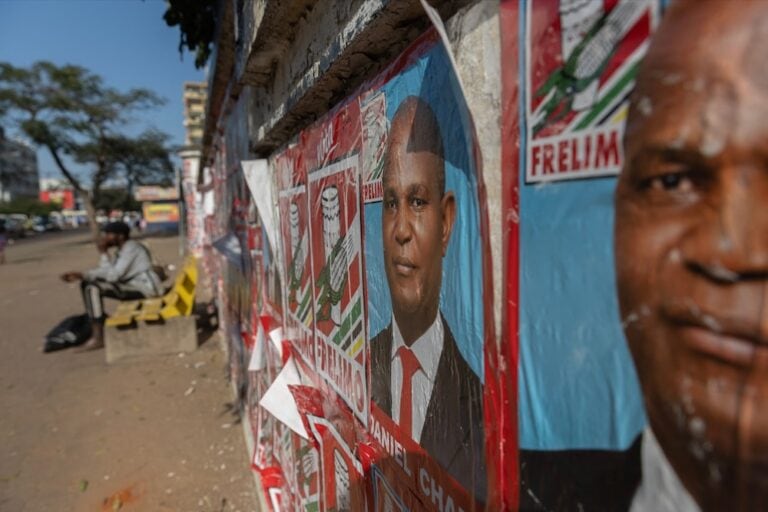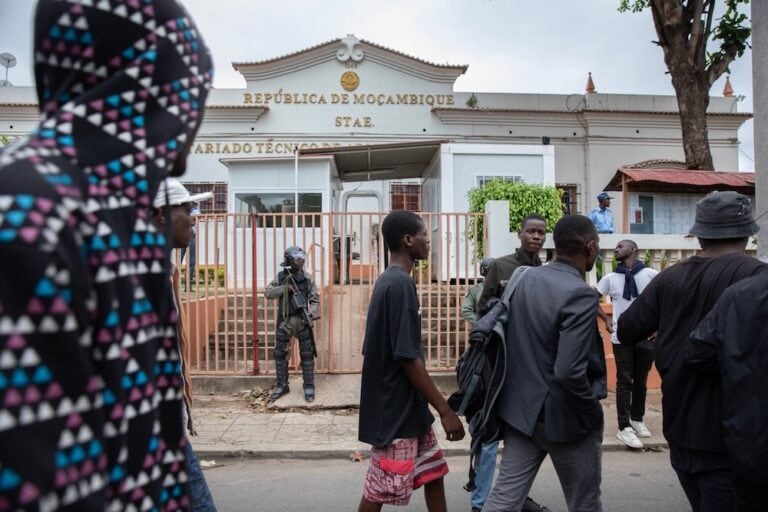(MISA/IFEX) – On 17 June 1999, the leader of a Mozambican opposition party, Domingos Arouca from the Mozambique United Front (FUMO), lost a libel suit against the country’s Sunday paper “Domingo”. The Mozambican news agency, AIM, reports that the case had serious implications for press freedom since Arouca had demanded damages of no less than […]
(MISA/IFEX) – On 17 June 1999, the leader of a Mozambican opposition party,
Domingos Arouca from the Mozambique United Front (FUMO), lost a libel suit
against the country’s Sunday paper “Domingo”.
The Mozambican news agency, AIM, reports that the case had serious
implications for press freedom since Arouca had demanded damages of no less
than 25 billion meticais (about US $2 million), a sum which would have
bankrupted the paper and forced its closure.
Arouca took exception to an opinion article written by Gabriel Simbine, a
prominent member of the ruling Frelimo Party. In the article, which appeared
in “Domingo” in May 1998, Simbine responded angrily to claims made by Arouca
that the founder and first President of Frelimo, Eduardo Mondlane, had been
killed by the left wing of Frelimo.
Several articles refuting Arouca’s thesis had appeared previously in the
Mozambican press, but AIM reports that Simbine’s article also called into
question Arouca’s anti-colonial credentials, and suggested that he shared
the fascist ideology of Portuguese dictator Antonio Salazar.
Arouca filed libel suits against Simbine and “Domingo”, as well as the
company that publishes “Domingo”, Sociedade de Noticias SARL, and Editores
Associados, the company that manages the paper.
The director of “Domingo”, Jorge Matine, established his defence based on
press freedom. He said that “Domingo’s” pages were open to a variety of
opinion, and it was not the paper’s business to censor those who wrote
opinion articles.
The court in Maputo’s first urban district agreed. Giving his verdict on 17
June, the judge declared that Simbine’s article fell within “the scope of
freedom of expression and of political debate” and therefore did not
constitute libel.
Arouca’s legal counsel indicated that they would appeal against the verdict.


